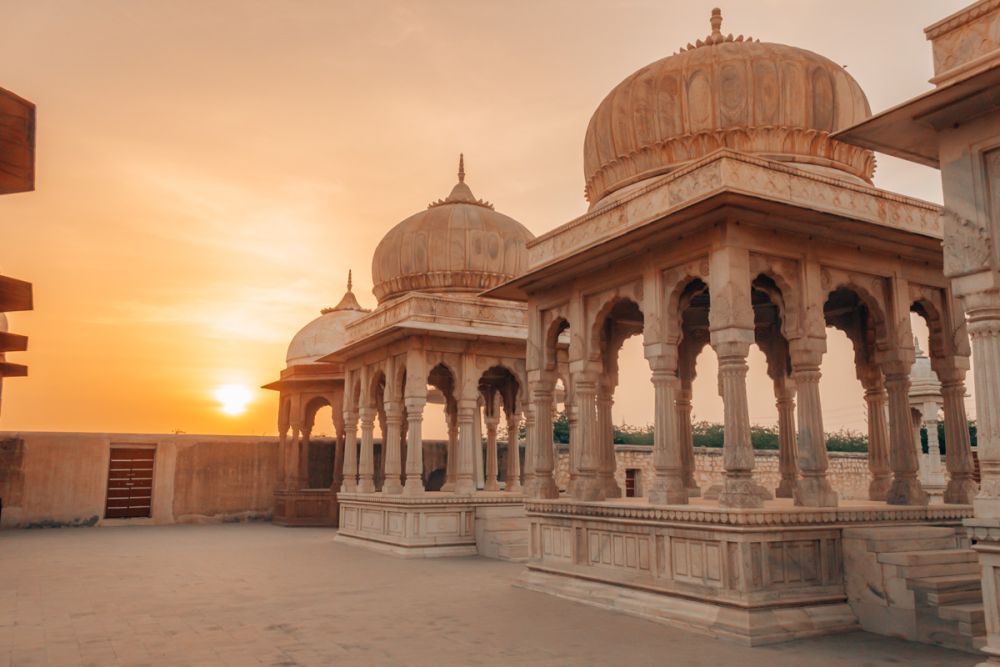

Devi Kund Sagar, also known as the Cenotaphs, is a prominent historical and tourist site located in Bikaner, Rajasthan, India. The site is a royal crematorium ground for the Maharajas of Bikaner and their family members. It consists of several exquisitely carved chhatris (cenotaphs), each signifying the spot where a Bikaner royalty was cremated. The cenotaphs date back to the 16th century, with the earliest cenotaph said to be that of Rao Kalyan Mal, the sixth ruler of Bikaner.
The history of tourism at Devi Kund Sagar is closely linked to the broader development of tourism in Rajasthan. Rajasthan has long been a favored destination for both domestic and international tourists due to its rich culture, history, and impressive architectural heritage. Tourism at Devi Kund Sagar started to gain traction post India's independence, particularly with the growth of heritage tourism in the region.
In the latter half of the 20th century, interest in India's royal history and its associated architecture began to grow among travelers. This led to an increased number of visitors to historic sites such as palaces, forts, and cenotaphs. Devi Kund Sagar, with its line of royal cenotaphs, became a testament to the rich historical narrative of the Maharajas of Bikaner and attracted tourists who were interested in the region's past and the architectural finesse of the chhatris.
In recent years, there has been an active effort to preserve and promote the historical sites of Bikaner, including Devi Kund Sagar. The Indian government and various heritage conservation bodies have undertaken projects to restore and maintain the intricate carvings and structures of the cenotaphs. These efforts have helped boost tourism by ensuring that the site remains an enduring attraction for visitors intrigued by India's royal heritage.
Photography and Culture: Devi Kund Sagar has become a favored spot for photography enthusiasts. The intricate stonework and the serene environment provide excellent opportunities for capturing the essence of Rajasthani architecture and design.
Education and Research: Scholars and history buffs are increasingly visiting the cenotaphs for research and educational purposes, exploring the fine details of Rajputana construction and the historical context of the Bikaner dynasty.
Eco and Sustainable Tourism: There is a growing awareness and push towards promoting eco-friendly and sustainable tourism practices in and around Bikaner. This trend involves ensuring that tourism development does not adversely affect the local environment or the historical monuments, including the cenotaphs at Devi Kund Sagar.
Experiential Travel: More recently, tourists are seeking authentic experiences that allow them to connect with local culture and history on a deeper level. At Devi Kund Sagar, this means engaging with the local guides to understand the stories behind each cenotaph and the significance of the site in the broader historical narrative of Rajasthan.
With its rich history and captivating beauty, Devi Kund Sagar continues to be an integral part of Bikaner's tourist landscape, inviting visitors to step back in time and experience the regal splendor of Rajasthan's royal past.